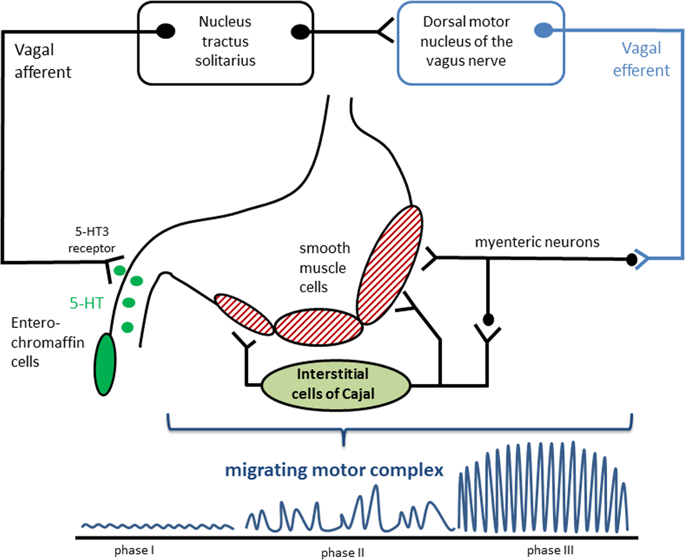npj Parkinson's Disease ( IF 6.7 ) Pub Date : 2019-07-26 , DOI: 10.1038/s41531-019-0087-3 Konstantin G. Heimrich , Veit Y. P. Jacob , Denise Schaller , Andreas Stallmach , Otto W. Witte , Tino Prell

|
The enteric nervous system is involved in the pathology of Parkinson´s disease and patients frequently have symptoms related to delayed gastric emptying. However, the pathophysiology of gastric dysmotility is yet not well understood. The objective of this study was to assess interdigestive gastric motility in Parkinson´s disease. Using an electromagnetic capsule system, the dominant gastric contraction frequency (primary outcome measure) and the gastric transit time were assessed in 16 patients with Parkinson´s disease and 15 young healthy controls after a fasting period of 8 h. Motor and non-motor symptoms were assessed using the Movement Disorder Society Unified Parkinson´s Disease Rating Scale III (MDS-UPDRS III), the Non-Motor Symptoms Questionnaire (NMS-Quest), and Hoehn & Yahr staging. The Gastroparesis Cardinal Symptom Index was used to record symptoms related to delayed gastric emptying. In healthy controls and patients with Parkinson's disease, the dominant contraction frequency was 3.0 cpm indicating normal function of interstitial cells of Cajal. In patients with Parkinson's disease, the gastric transit time was longer than in younger controls (56 vs. 21 min). The dominant contraction frequency and gastric transit time did not correlate with age, disease duration, Hoehn & Yahr stage, levodopa equivalent daily dose, MDS-UPDRS III, NMS-Quest, and Gastroparesis Cardinal Symptom Index. Changes of gastric motility in Parkinson´s disease are not caused by functional deficits of the gastric pacemaker cells, the interstitial cells of Cajal. Therefore, gastroparesis in Parkinson's disease can be attributed to disturbances in neurohumoral signals via the vagus nerve and myenteric plexus.
中文翻译:

帕金森氏病的胃动力异常不是由胃起搏器细胞的改变引起的
肠神经系统参与帕金森氏病的病理,患者经常出现与胃排空延迟有关的症状。然而,胃动力障碍的病理生理学还没有被很好地理解。这项研究的目的是评估帕金森氏病的消化道胃动力。在禁食8小时后,使用电磁胶囊系统评估了16名帕金森氏病患者和15名年轻健康对照组的主要胃收缩频率(主要结果指标)和胃运输时间。运动和非运动症状通过运动障碍学会联合帕金森氏疾病分级量表III(MDS-UPDRS III),非运动症状问卷(NMS-Quest)以及Hoehn&Yahr分期进行评估。胃轻瘫主要症状指数用于记录与胃排空延迟有关的症状。在健康对照组和帕金森氏病患者中,主要收缩频率为3.0 cpm,表明Cajal间质细胞功能正常。在帕金森氏病患者中,胃的转运时间比年轻的对照组要长(56比21分钟)。主导的收缩频率和胃通过时间与年龄,疾病持续时间,Hoehn&Yahr分期,左旋多巴等效剂量,MDS-UPDRS III,NMS-Quest和胃轻瘫主要症状指数无关。帕金森氏病的胃动力变化不是由胃起搏器细胞(Cajal的间质细胞)的功能缺陷引起的。因此,帕金森氏症的胃轻瘫











































 京公网安备 11010802027423号
京公网安备 11010802027423号